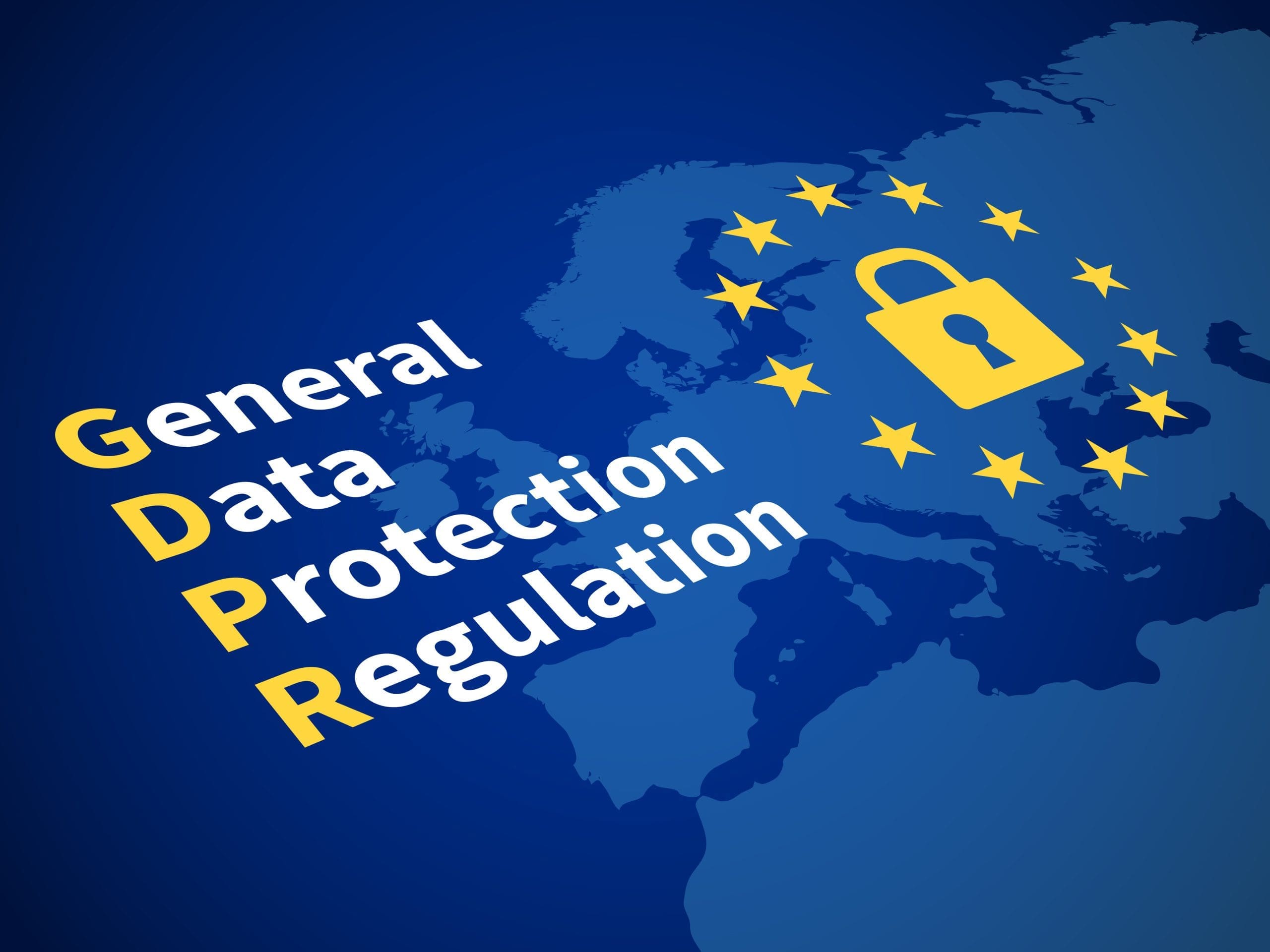
The General Data Protection Regulation (GDPR), enacted by the European Union in 2016, serves as a comprehensive framework for safeguarding individuals’ privacy and personal data. This regulation grants individuals greater control over their personal information and streamlines international business regulations. In this context, GDPR’s key principles encompass personal data protection, consent requirements for data processing, and the need for businesses to implement robust measures to secure personal data, all of which profoundly impact online reputation management strategies. This article explores how GDPR influences online reputation management by regulating the collection and use of personal data, necessitating explicit consent for data processing, and imposing substantial penalties for non-compliance. To comply with GDPR, businesses must establish data protection policies, secure consent for personal data processing, implement data security measures, and respect data subject rights. Despite posing challenges, GDPR offers numerous advantages for online reputation management, fostering trust, transparency, data security, and enhanced reputation practices, ultimately empowering businesses to cultivate a positive and trustworthy online image.
What is GDPR?
The General Data Protection Regulation (GDPR) is a regulation within the EU that aims to give individuals more control over their personal data and simplify the regulatory environment for international business. It applies to all companies processing the personal data of individuals residing in the EU, regardless of the company’s location.
The GDPR provides a set of rules for the lawful and transparent processing of personal data, including the consent of the individuals and their right to access and rectify their data. In short, GDPR is a regulation that sets guidelines for the handling of personal data within the EU.
What are the Key Principles of GDPR?
The key principles of GDPR encompass data protection, transparency, accountability, security, and lawfulness. These principles serve as guidelines for the lawful and fair processing of personal data, giving individuals control over their information and promoting responsible data management.
How Does GDPR Affect Online Reputation Management?
- Transparency: With the implementation of GDPR, companies are now required to be transparent in their data processing methods, which has a direct impact on online reputation management.
- Consent: Under GDPR, obtaining consent for data collection and processing is crucial, greatly influencing how companies manage and maintain their online reputation.
- Data Protection: The strict data protection measures enforced by GDPR have a significant impact on how companies safeguard their online reputation data.
- Right to Erasure: One of the key rights granted by GDPR is the right to have personal data erased, which has a direct effect on online reputation management strategies.
What Personal Data is Covered by GDPR?
Under GDPR, personal data encompasses any information related to an identified or identifiable natural person, such as name, email, location data, IP address, and online identifiers. This includes factors specific to the individual’s physical, physiological, genetic, mental, economic, cultural, or social identity. To ensure compliance, companies must handle, process, and protect this data with utmost care and transparency.
GDPR: Making sure your personal data is protected even in the shady world of online reputation management.
How Does GDPR Regulate the Collection and Use of Personal Data for Online Reputation Management?
GDPR regulates the collection and use of personal data for online reputation management through:
- Explicit Consent: Obtaining clear consent from individuals before processing their personal data.
- Lawful Basis: Ensuring that the processing of personal data for reputation management has a lawful basis, such as legitimate interests or consent.
- Data Minimization: Only collecting and processing the necessary data for reputation management purposes.
- Data Security: Implementing robust security measures to protect the personal data gathered for reputation management.
What Are the Consequences of Non-Compliance with GDPR for Online Reputation Management?
The repercussions for not complying with GDPR in terms of online reputation management are significant. Companies can face fines of up to 4% of their global annual turnover or €20 million, whichever is greater. Furthermore, non-compliance can result in damage to a company’s reputation, loss of customer trust, and potential legal consequences, all of which can greatly impact their online reputation and overall business operations.
To ensure compliance, it is important for companies to regularly conduct GDPR audits, appoint a data protection officer, provide staff training, and implement strong data protection measures.
What Steps Can Companies Take to Ensure GDPR Compliance for Online Reputation Management?
In today’s digital age, protecting personal data has become a top priority for businesses. With the implementation of the General Data Protection Regulation (GDPR), companies are required to take necessary steps to ensure compliance in all aspects of data management, including online reputation management.
Creating a Data Protection Policy
- Identify Data: Determine what personal data is collected, processed, and stored.
- Risk Assessment: Evaluate potential risks and vulnerabilities related to personal data processing.
- Policy Development: Draft a comprehensive data protection policy outlining data processing guidelines, security measures, and compliance procedures for creating a Data Protection Policy.
- Staff Training: Educate employees on data protection regulations, security protocols, and their roles in compliance.
- Record-Keeping: Maintain records of data processing activities, consent, and security incidents.
Make sure your data is as consensual as your first date, or face the consequences of non-compliance with GDPR.
Obtaining Consent for Personal Data Processing
When seeking consent for the processing of personal data, it is crucial to follow specific guidelines to comply with data protection regulations effectively. Begin by informing individuals about the purpose and lawful basis for processing their personal data, clearly articulating why you are collecting their data, and the legal justification for doing so. Additionally, provide a transparent description of the types of personal data being collected and how it will be used, ensuring clarity and openness. To empower individuals, offer them the option to either consent or refuse consent for their data to be processed, respecting their autonomy. If your data processing involves multiple purposes, request separate consent for each specific activity. Lastly, make it a priority to allow individuals to withdraw their consent at any time, ensuring that the process is as straightforward as granting consent. By making the consent process transparent and easily accessible, you can not only ensure compliance with data protection regulations but also build trust and demonstrate your commitment to obtaining consent for personal data processing.
Implementing Data Security Measures
- Regular Security Audits: Implementing data security measures is crucial for safeguarding sensitive information. Companies should prioritize conducting routine assessments to identify vulnerabilities.
- Access Control: To ensure comprehensive protection, limit data access to authorized personnel through encryption and authentication mechanisms.
- Employee Training: Educate staff on security protocols, phishing awareness, and data handling best practices to prevent security breaches.
- Incident Response Plan: Develop a clear strategy for detecting, responding to, and recovering from security breaches to minimize the impact of a potential breach.
Implementing data security measures is crucial for safeguarding sensitive information. Companies should prioritize regular security audits, access control, employee training, and incident response planning to ensure comprehensive protection. Make sure personal data is treated with respect and not like a cheap pick-up line at a bar.
Providing Data Subject Rights
Ensuring the provision of data subject rights under GDPR is crucial for effective online reputation management. It is the responsibility of companies to maintain transparency and grant individuals the right to access, correct, and delete their personal data. In addition, organizations should enable data portability and the right to object to data processing. Upholding these rights not only fosters trust but also ensures compliance with GDPR, ultimately improving online reputation management practices.
What Are the Benefits of GDPR for Online Reputation Management?
GDPR, or the General Data Protection Regulation, has had a significant impact on the world of online reputation management.
Increased Trust and Transparency
Trust and transparency are increased under GDPR through clear communication with individuals regarding their data, obtaining consent for processing, and offering control over personal information.
Improved Data Security and Privacy
Enhanced data security and privacy measures under GDPR provide companies with the chance to strengthen their digital assets against unauthorized access and data breaches. Through the implementation of strong data encryption, access controls, and regular security assessments, organizations can guarantee the confidentiality and integrity of personal data. Moreover, the focus on transparency in GDPR enables businesses to build trust with customers by clearly outlining privacy policies and data handling procedures.
Enhanced Reputation Management Practices
Under GDPR, enhanced reputation management practices involve proactive monitoring of personal data usage, transparent communication with data subjects, and swift response to data access requests. This framework ensures compliance with data protection regulations while also nurturing a positive online image.
During the implementation of GDPR, a multinational corporation revamped its reputation management strategies, placing a greater emphasis on ethical data handling and transparency. This shift not only improved legal compliance but also strengthened customer trust and loyalty.
You might also like
Reputation Recovery for Public Figures After Scandals
The General Data Protection Regulation (GDPR), enacted by the European Union in 2016, serves as a comprehensive framework for safeguarding …
